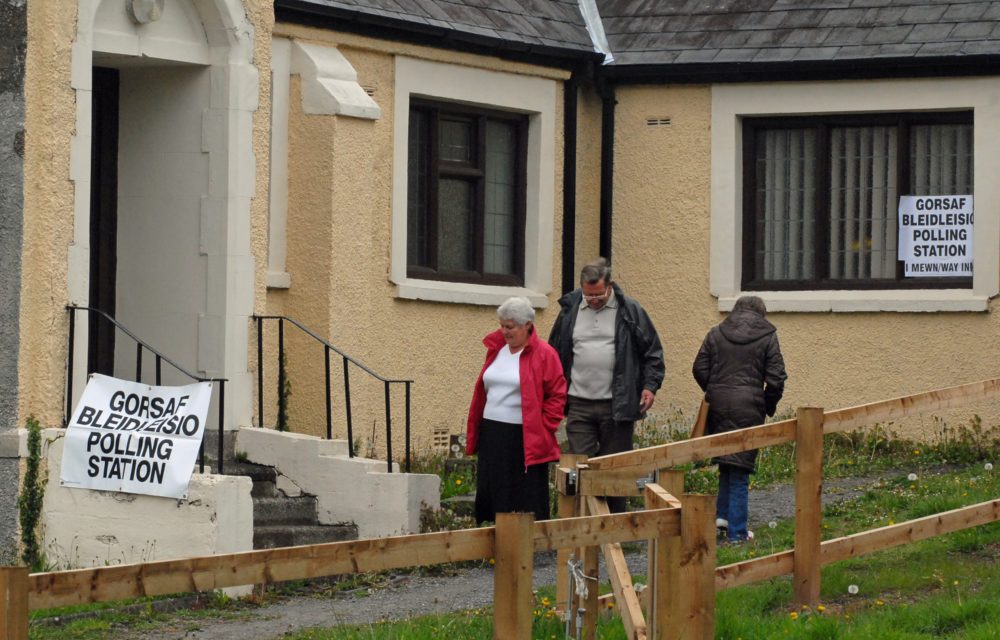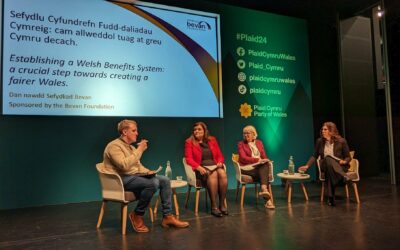 Bevan Foundation
Bevan Foundation 
Victoria Winckler reflects on the implications of the general election result for people and communities in Wales.
It’s nearly two weeks after the general election and the dust from one of the most surprising results ever has yet to settle. Speculation about the Queen’s Speech, the deal with the DUP and just how soon Theresa May’s term of office will end are rife. But what might the result mean for people and communities in Wales – an issue that has had very little coverage so far. So here are some thoughts, ten days on.
Wales is off the political agenda
Although an early poll suggested that Wales was going blue, the result itself showed Wales was by far the most pro-Labour part of Britain, with Labour securing 48.9% of the vote compared with 41.9% in England and 27.1% in Scotland.
Despite the result (or maybe because of it), Wales is off the political agenda. It doesn’t have partners likely to enter a deal as in Northern Ireland, and it didn’t elect a raft of new Conservative MPs without which the PM would not have a majority, as in Scotland.
Wales has very little leverage and risks being overlooked – again. This is potentially a real problem as Brexit negotiations and the repatriation of powers takes place, and as the fall-out hits Welsh communities hard.
The Queen’s Speech
The Queen’s Speech threatens to be a damp squib. There is no resounding mandate for the controversial proposals in the Conservative manifesto, e.g. on social care, a double rather than triple lock on pensions or ending winter fuel allowance and free school meals in England. The less controversial ideas – improving corporate governance, enhancing digital security and increased spending on the NHS – may well come to take centre stage.
Important, but not transformative.
Is this the end of austerity?
People are clearly tired of austerity. The Conservative Manifesto was firmly committed to maintaining the outgoing government’s fiscal rules and achieving “balanced budget by the middle of the next decade”. In Wales barely one-third of the electorate (33.6%) said yes to that proposition, as did a minority (45.6%) of voters in England and 28.6% of voters in Scotland.
Whether people will get an end to austerity is another matter.
Wales Public Services 2025 estimate that the Barnett consequentials of the Conservative manifesto’s spending commitments on the NHS in England would leave a shortfall of £551 million in health spending in Wales, even allowing for some heroic assumptions about efficiency. Labour’s public spending offer was more generous but still leaves a gap – £299 million – after efficiency savings.
There is clearly no quick fix to the NHS’s demand for cash, let alone other services.
The outlook is tough
The outlook for people at the bottom of the income league is looking tough. For all the Conservative manifesto’s commitment to raise the National Minimum Wage for over 25 year-olds to 60% of median pay, it looks likely that gains will be more than offset by inflation, rising housing costs and freezing of in-work benefits. Those on out-of-work benefits face outright cuts to their incomes as benefits are frozen.
Even pensioners – supposedly indulging in a silver spending spree – are being squeezed with worrying upswings in pensioner poverty.
For all the election result was one of the most astonishing I can recall, the UK is still a very long way from having the policies needed to address the big challenges of our times. Climate change? Barely a mention. Demographic change? Not enough cash. The economy? Clearly not delivering prosperity for all.
In time, we might come to think that this actually wasn’t the most exciting election after all.
Victoria Winckler is Director of the Bevan Foundation.


